Showcase of 2023-2024 Reports on LGBTQ Social Media Safety
In 2021, the inaugural GLAAD Social Media Safety Index report offered the first-of-its-kind dedicated analysis on LGBTQ safety and social media platforms. There are now many powerful reports and studies devoted to these issues, some of the most significant of the past year are showcased here. The report summaries below offer an invaluable overview of the current landscape for LGBTQ safety, privacy, and expression online. We urge everyone, especially platform leadership and executives, to read the full reports.
Important 2023-2024 research on anti-LGBTQ hate and violence includes the February 2024 report: New Findings Show 60+ Anti-LGBTQ+ Incidents Targeting US Religious Institutions, and the November 2023 documentation of more than 700 anti-LGBTQ hate and extremism incidents in the year following the tragic attack at Club Q in Colorado Springs. The Year in Review: Anti-LGBTQ+ Hate & Extremism Incidents report tracked more than 350 anti-LGBTQ incidents in the US between June 2022 and April 2023.
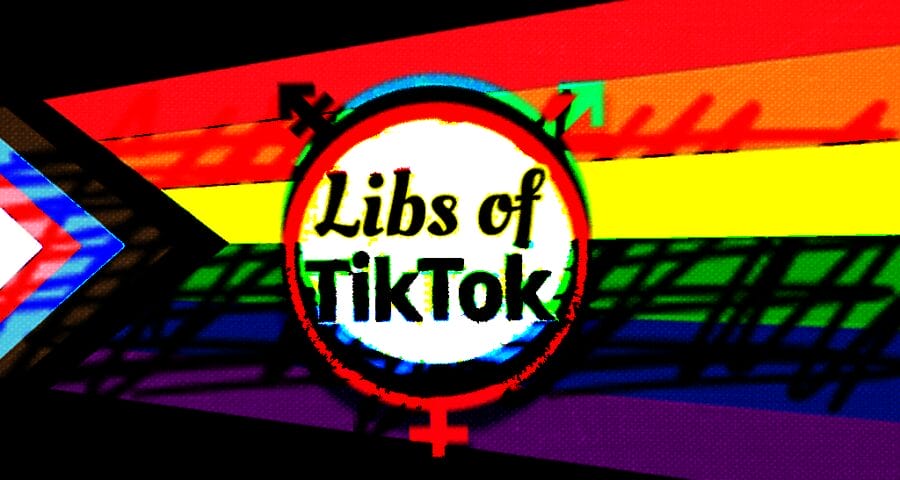
TIMELINE: The impact of Libs of TikTok
Media Matters for America — (April 2022 – Present)
An expansive, ongoing report from Media Matters for America, “TIMELINE: The impact of Libs of TikTok told through the educators, health care providers, librarians, LGBTQ people, and institutions that have been harassed and violently threatened” documents how harassment and threats of violence against institutions, events, and individuals have occurred after incitement from anti-LGBTQ extremist account Libs of TikTok across X and Meta’s platforms. As of the date of publication of this report, the current number of incidents is at least 48. A November 2023 USA Today feature on the report confirmed the research, and also explores the phenomenon of stochastic terrorism (in which public demonization of a person or group results in the incitement of a violent act, which is statistically probable but whose specifics cannot be predicted) and networked harassment. The dedicated year-round work of Media Matters bears special mention for being so extensive and prolific. Their dozens of LGBTQ dispatches and reports can be found here.
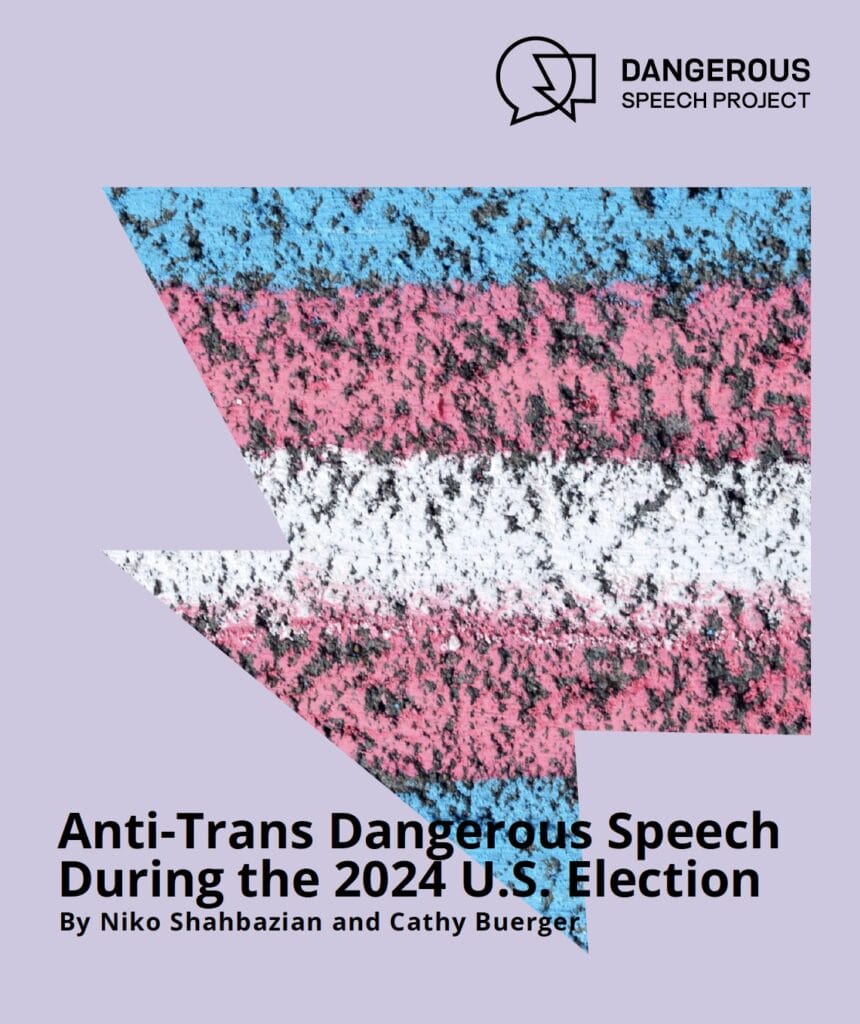
Anti-Trans Dangerous Speech During the 2024 U.S. Election
Dangerous Speech Project — April 2024
The Dangerous Speech Project has been tracking forms of harmful expression and advising tech companies since 2010. This new report from their Global Research Initiative offers a sobering analysis of the prevalence, intensity, harms, and dangers of anti-trans hate speech online, and concludes with examples of efforts to counter this dangerous speech. From the report: “As the 2024 United States election approaches, speech that can move people toward accepting violence, called “dangerous speech” (DS), is flourishing, and with it, there is a growing possibility of intergroup violence. Transgender, nonbinary, and gender nonconforming people have become a primary target of such speech. Influential politicians, media figures, and religious leaders are portraying transgender people as threats to children, other women, families, traditional values and public safety … A defining feature of dangerous speech is that it often promotes fear, as much as it expresses or promotes hatred. For example, one can assert that another group is planning to attack one’s own group without expressing hatred, yet that message might easily convince people to condone or commit violence, ostensibly to fend off the attack. Violence would seem defensive, and therefore justified … Combatting anti-trans rhetoric requires a multifaceted approach, including education, advocacy, and policy changes aimed at promoting inclusivity and equality. Understanding the rhetorical patterns used to advance dangerous narratives about trans people is one step toward designing better interventions to counter such speech.”
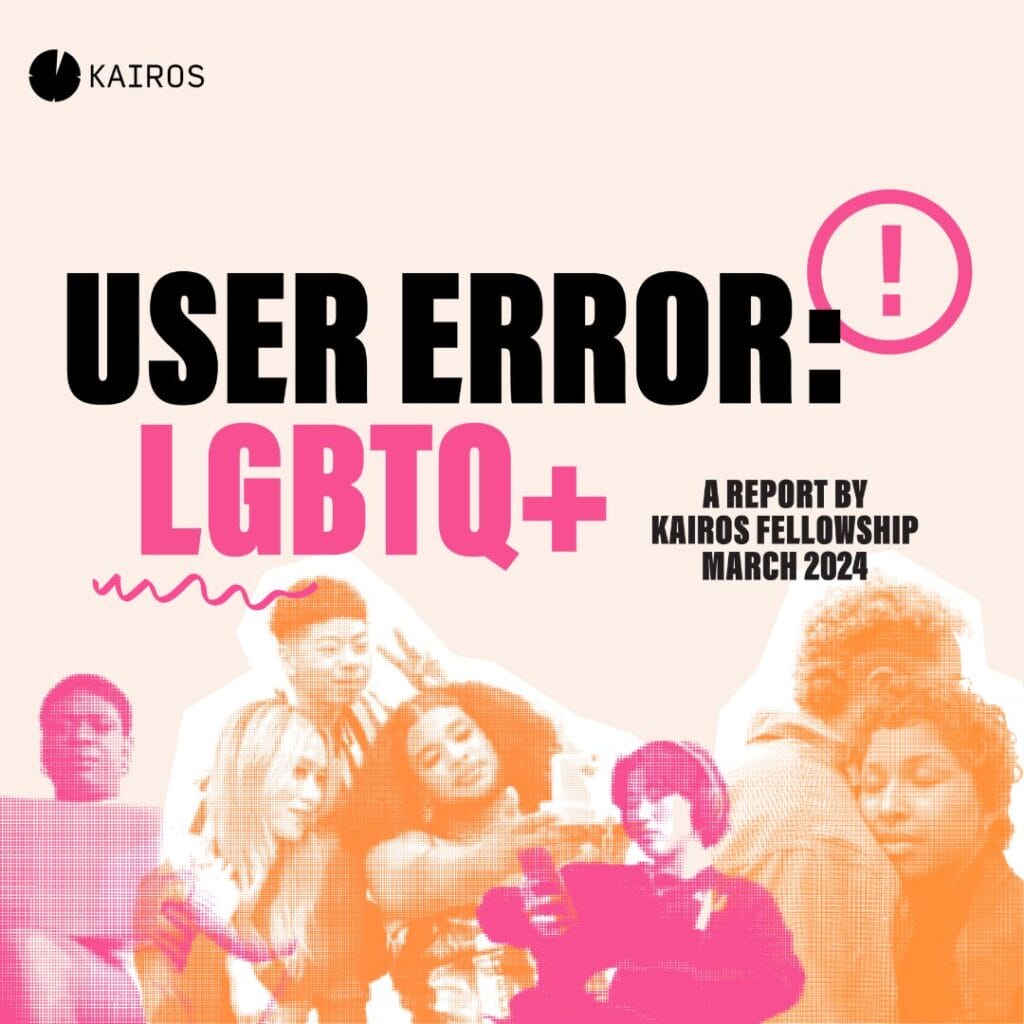
User Error: LGBTQ
Kairos Fellowship — March 2024
From the respected racial justice and platform accountability organization Kairos Fellowship, this latest in the series of “User Error” reports looks at the history of LGBTQ people and the Internet, shows how platforms are complicit in the harm the queer community faces online, and envisions what an internet that values queerness and queer people could look like. From the report: “The bottom line: Social media companies’ role in spreading violent homophobia and transphobia is undeniable. On the surface, Big Tech may pretend to care about LGBTQ people but behind the scenes they will do anything to make a dollar, which includes allowing anti-LGBTQ content online for profit and unfairly taking down LGBTQ+ content. We must fight for a pro-queer future. This future is not just an internet that simply allows or tolerates LGBTQ+ people. It is one where everyone can exist without being targeted. It’s a world in which online platforms can’t be used by anti-LGBTQ+ groups or politicians to further a destructive agenda. It’s a future where tech works for and humanizes queer and trans people.”
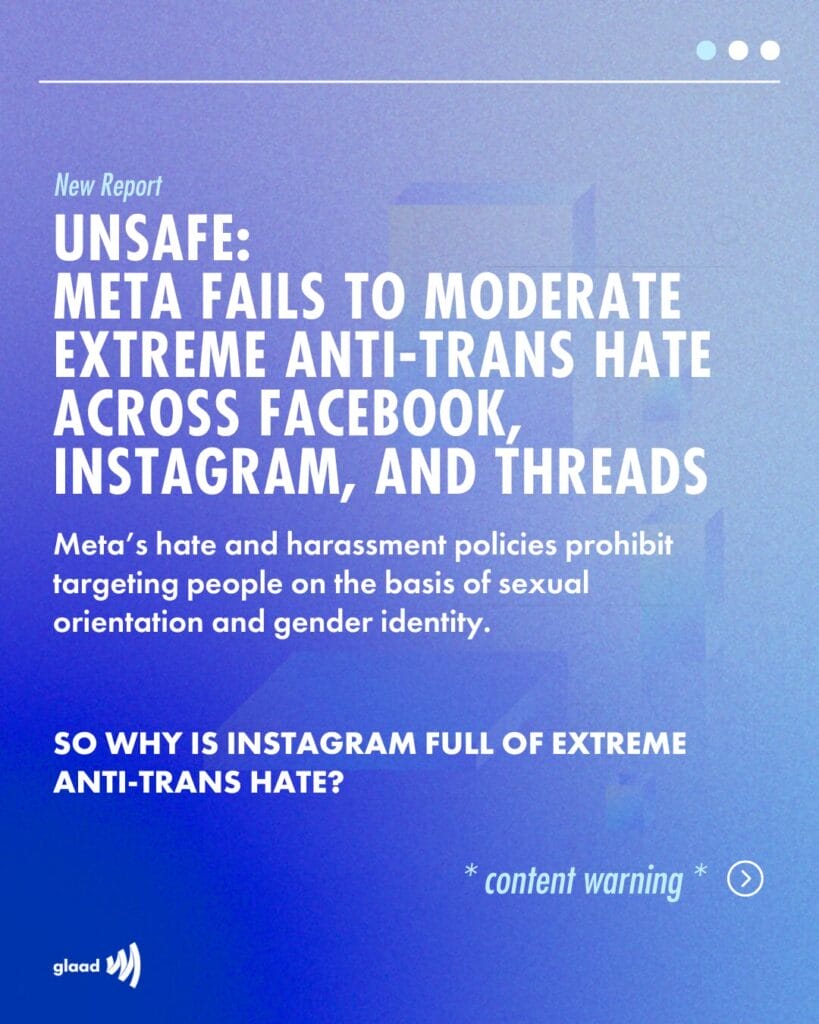
Unsafe: Meta Fails to Moderate Extreme Anti-trans Hate Across Facebook, Instagram, and Threads
GLAAD — March 2024
In June 2023, more than 250 LGBTQ public figures and allies delivered an open letter to social media companies, pleading with them to develop and share a plan to address the epidemic of anti-trans hate on their platforms. Released nine months later, in March 2024, GLAAD’s “Unsafe” report showcases dozens of examples of the shocking, dehumanizing anti-trans content that Meta actively allows on Facebook, Instagram, and Threads. All of the content examples in the report were submitted to Meta’s standard reporting systems by GLAAD; Meta either replied that posts were not violative or simply did not take action on them. The Washington Post covered the release of the report, noting that posts “included calls for the violent extermination of transgender people as well as descriptions of trans and gender nonconforming people as ‘satanic,’ ‘sexual predators,’ ‘terrorists,’ ‘mentally ill’ and ‘perverts.’” The report calls for Meta to take urgent action as trans and LGBTQ people continue to experience real-world harms stemming from anti-LGBTQ accounts with large followings. Also see GLAAD’s February 2024 report: All Social Media Platform Policies Should Recognize Targeted Misgendering and Deadnaming as Hate Speech.

Conversion Therapy Online: The Ecosystem in 2023
Global Project on Hate & Extremism (GPAHE) — January 2024
This powerful and extremely detailed January 2024 report from the Global Project on Hate & Extremism (GPAHE) reveals that harmful so-called “conversion therapy” content remains widely available online, particularly in non-English languages. The report offers clear and easy to implement best practice guidance for social media platforms to mitigate such content. The practice of so-called “conversion therapy” has been condemned by all major medical, psychiatric, and psychological organizations as dangerous, and has been banned by dozens of countries and states. In addition to GLAAD’s efforts urging platforms to add prohibitions against the promotion of so-called “conversion therapy” to their community guidelines, GLAAD also urges these companies to effectively enforce these policies. This GPAHE report can serve as a useful practical guide in implementing solutions. Also see GLAAD’s February 2024 report: All Social Media Platforms Should Have Policy Prohibitions Against Harmful So-Called “Conversion Therapy” Content.

Secure Our Socials
Human Rights Watch — January 2024
This ambitious campaign is a follow-up companion to a February 2023 Human Rights Watch report (“Digital Targeting and Its Offline Consequences for LGBT People in the Middle East and North Africa”). The “Secure Our Socials” campaign calls on Meta to take concrete steps to make their platforms safer for those being targeted, pointing out how LGBTQ users “have faced online harassment, doxxing, outing, extortion, hacked accounts, and entrapment by security forces and private individuals on Instagram and Facebook.” The campaign’s open letter to Meta calls for: rapid, accountable, and transparent content moderation practices; greater transparency and investments in user safety; investment in content moderators with proficiency in each Arabic dialect and in other regional languages; and also requests that the company introduce a one-step account lockdown tool allowing users to wipe all Meta content on a given device. The campaign also includes this downloadable “LGBT People Should Feel Secure Online — Awareness Tips” resource which offers guidance on how to prevent becoming a victim of digital targeting, and explains how to mitigate the harms and impact if one has been targeted.
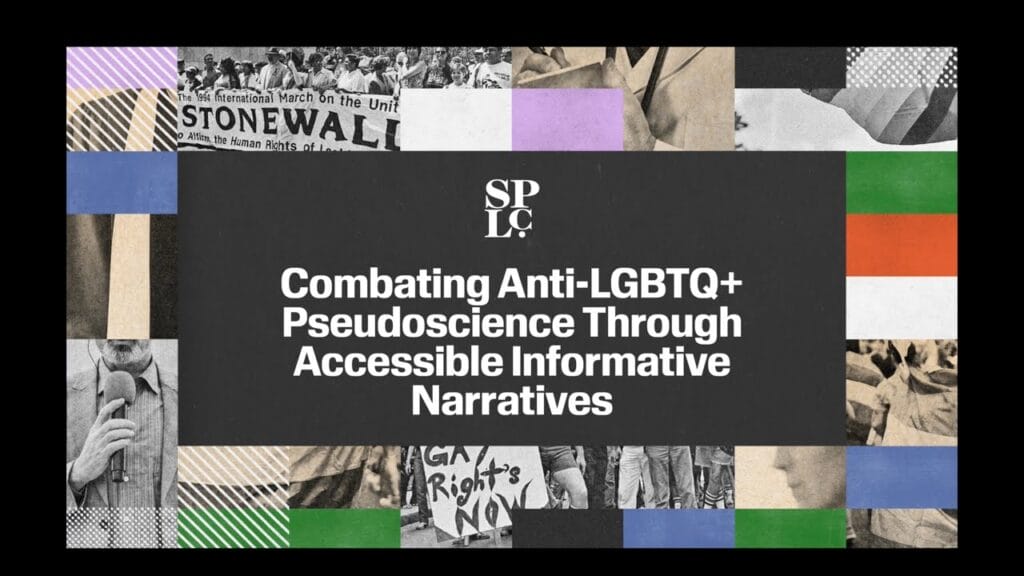
Combating Anti-LGBTQ+ Pseudoscience
Southern Poverty Law Center — December 2023
From the report: “In recent years, researchers, social scientists and historians have all shown how social media amplification of anti-LGBTQ+ disinformation that includes conspiracy theories about medical providers derived from pseudoscientific claims about LGBTQ+ identity fuels violent attacks targeting individual LGBTQ+ people and healthcare providers. Anti-LGBTQ+ organizations use pseudoscience to attack not only affirming medical practices, but almost any social, religious, commercial or governmental affirmation of LGBTQ+ identity and LGBTQ+ representation in popular culture. With the help of right-wing and extremist social media personalities … anti-LGBTQ+ groups have peddled and continue to use pseudoscience for several reasons. Most importantly, their agenda is unpopular among the general public … Also, they know that perpetuating harmful stereotypes to keep the ‘debate’ over LGBTQ+ rights alive is financially lucrative. Finally, many anti-LGBTQ+ groups see potential in dividing public opinion and policymakers over transgender rights. They see an opportunity to reinvigorate their anti-LGBTQ+, anti-abortion, ‘parental rights’ and ‘religious freedom’ agendas by promoting junk science about transgender people, gender-affirming health care and the experiences of LGBTQ+ young people, specifically. Anti-LGBTQ+ pseudoscience has become a prominent component of anti-LGBTQ+ policy networks who want to disguise their bigoted motivations with seemingly objective language. These networks help translate anti-LGBTQ+ pseudoscience into legislative and legal campaigns to limit bodily autonomy and LGBTQ+ people’s human rights.”
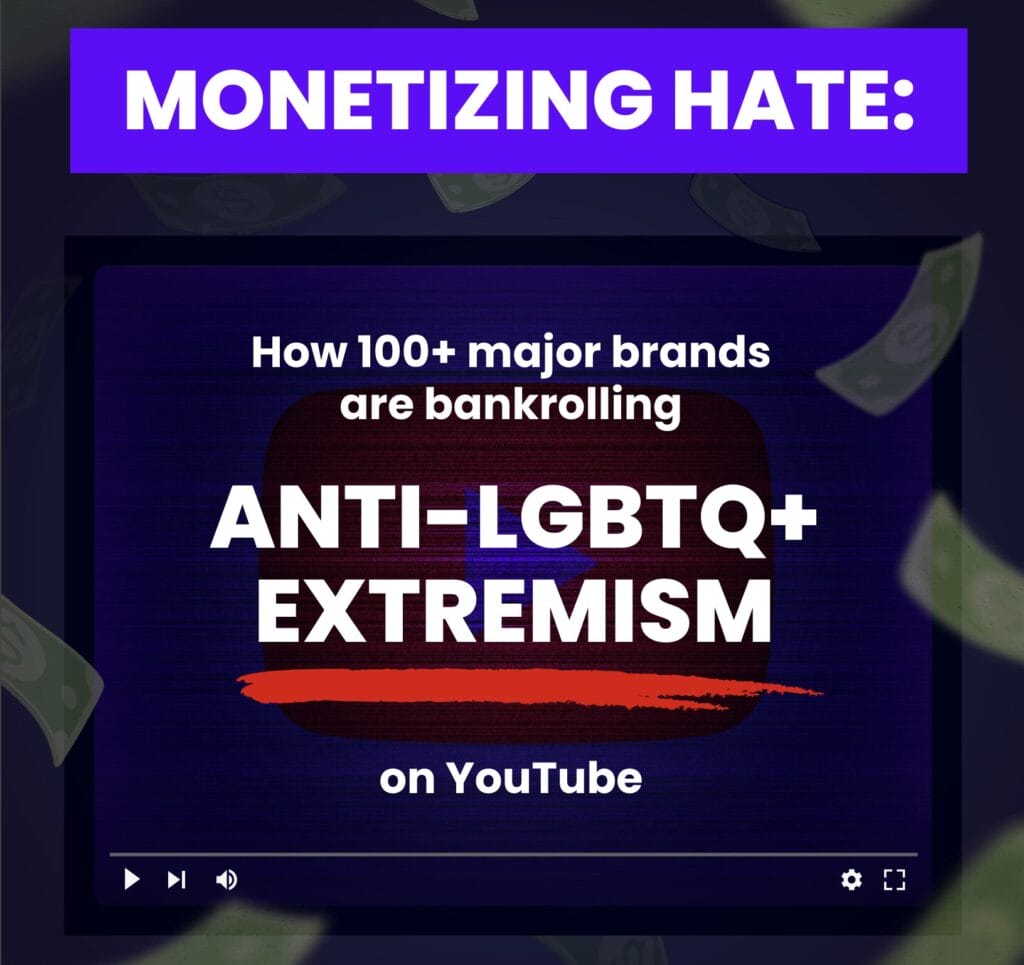
Monetizing Hate: How 100+ Major Brands Are Bankrolling Anti-LGBTQ Extremism on YouTube
Ekō — November 2023
This hard-hitting expose from corporate accountability group Ekō details how ads for dozens of major brands, including Nike, J.Crew, and L’Oréal, are appearing next to videos inciting violence and hatred against LGBTQ people. The findings underscore significant failings in YouTube’s monetization and moderation systems, as well as reputational and business risks to some of the world’s biggest brands. The authors of the report call on advertisers to take a principled stand against funding hate and disinformation through a host of measures including demanding access to detailed information about ad placements, and enforcing business contracts regarding brand safety standards. The report authors also demand action from YouTube to bolster moderation and demonetize harmful channels, in addition to urging transparency interventions from U.S. policymakers. YouTube’s Community Guidelines prohibit anti-LGBTQ hate speech and harmful content; yet the report clearly shows those policies aren’t being properly enforced. Researchers analyzed 13 monetized videos by well-known, anti-LGBTQ figures seemingly breaching YouTube’s policies on hateful and derogatory content, violent content, and incendiary and demeaning content. The report found that at least 104 brands that have expressed public support for the LGBTQ community were found to be funding anti-LGBTQ hate content.

2023 LGBTQ+ Youth Report (LGBTQ+ Youth and the Internet)
Human Rights Campaign (HRC) — November 2023
Illuminating the upsides and downsides of social media for LGBTQ youth, this annual report from the Human Rights Campaign (HRC) found that virtually all LGBTQ youth (95.3%) have used the internet to find information that helps them understand their LGBTQ identity. More than two-thirds (68.3%) of respondents said they participate in online communities to engage with other LGBTQ people in their age group, with the figure being even higher (73.3%) for transgender and gender-expansive youth. However, according to the report: “LGBTQ+ youth are inundated with anti-LGBTQ+ content online and are often cyberbullied.” In fact, 96% of LGBTQ youth have seen content on social media that was offensive or hurtful toward LGBTQ people; and half of LGBTQ young people have experienced cyberbullying “based on an identity of theirs’ in the last year (49% of LGBTQ+ youth and 52.9% of transgender and gender-expansive youth). And 15.2% of LGBTQ+ youth (and 16.7% of trans/gender-expansive youth) say they do not feel safe participating in online activities. Pointing to the need for better messaging and resources from platforms, the report also notes that 18.2% (and 17.5% of trans/gender-expansive youth) did not know how to report encountered cyberbullying or online hate speech to social media platforms; and 65.5% of LGBTQ youth (and 67.3% of trans/gender-expansive youth) were not confident that platforms would take steps to resolve the issue if they did report such problems.
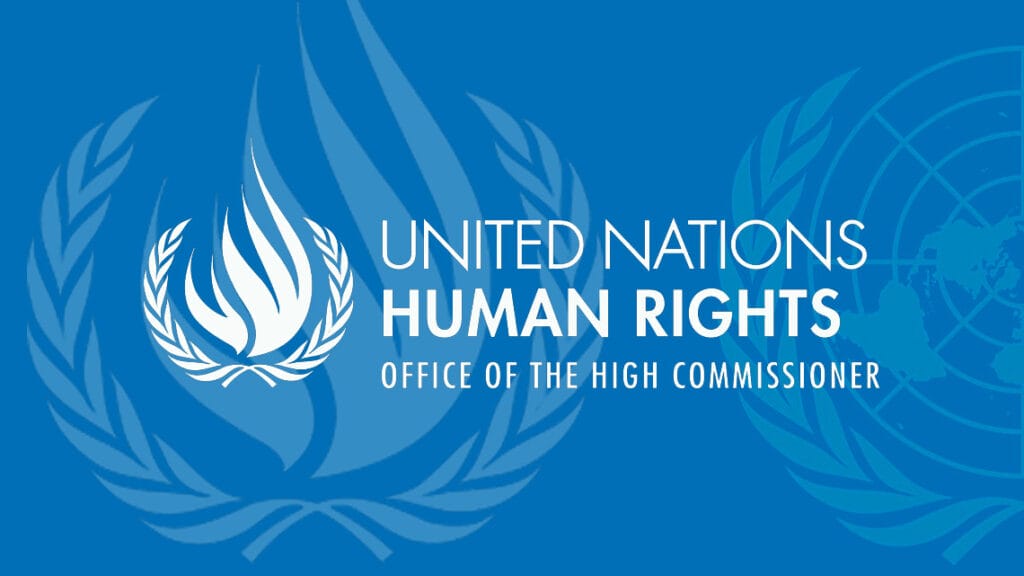
REPORT: Gendered Disinformation and Freedom of Expression
UN Special Rapporteur — October 2023
This report to the UN General Assembly from Special Rapporteur Irene Khan explores the negative impact of gendered disinformation, especially on women and gender nonconforming persons, and its implications for the right to freedom of expression. Identifying gendered disinformation as both a strategy to silence the free expression of women and gender nonconforming persons, and as a threat to their safety and health, the report also importantly acknowledges the dangerous impact of surveillance-based advertising, noting: “Disinformation, including gendered disinformation, is a lucrative business. The main revenue of large intermediaries comes from the buying, selling and marketing of advertisements. Platforms monetize attention through targeted advertising, using complex statistical models to predict and maximize engagement with content. The more time a person spends scrolling and clicking, the more data companies can collect and the more ads they can sell.”
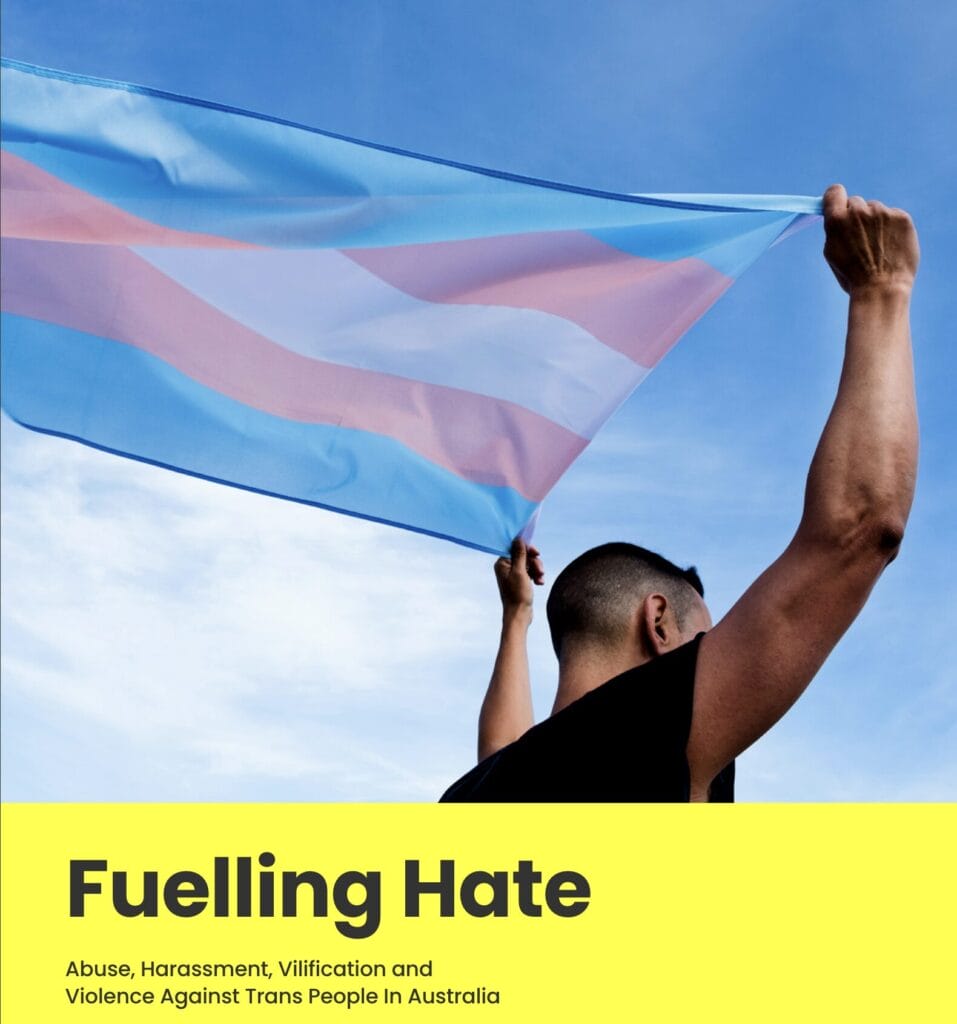
Fuelling Hate Report
Trans Justice Project — August 29, 2023
The 2023 “Fuelling Hate” report — the largest-ever project investigating anti-trans hate in Australia — polled 3,000 respondents (including 1300 trans people). The survey found that anti-trans hate is ubiquitous both online and offline — 94.55% of all participants reported witnessing online anti-trans hate in the previous year. Approximately half (49.20%) of trans participants had experienced online anti-trans hate (abuse, harassment, or vilification) in the prior 12 months, with a similar rate of experiences of offline anti-trans hate (47.9%) — defined as in-person harassment, abuse, or violence. According to the report: “Trans people experience a range of online hate, such as deliberate misgendering, hate speech, bullying, doxing, stalking, threats of violence and sexual assault, death threats, incitement to commit suicide and incitement to genocide.” Such anti-trans hate is concentrated in: “social media platforms, comment sections (especially on news websites) and dating apps. Perpetrators were sometimes well-known anti-trans figures but were often anonymous.” The report also found that anti-trans hate is escalating over time (1 in 3 participants reported an increase in anti-trans hate since 2020). As in the U.S. (and around the world), the report cites the problem of “targeted disinformation campaigns from media outlets and anti-trans lobbyists,” as key precipitating factors for the current wave of online and offline anti-trans hate. Amidst this dire landscape, the Australian eSafety Commissioner is pursuing various efforts to reign in social media platforms; its work also includes offerings such as this dedicated LGBTIQ+ eSafety resource site.
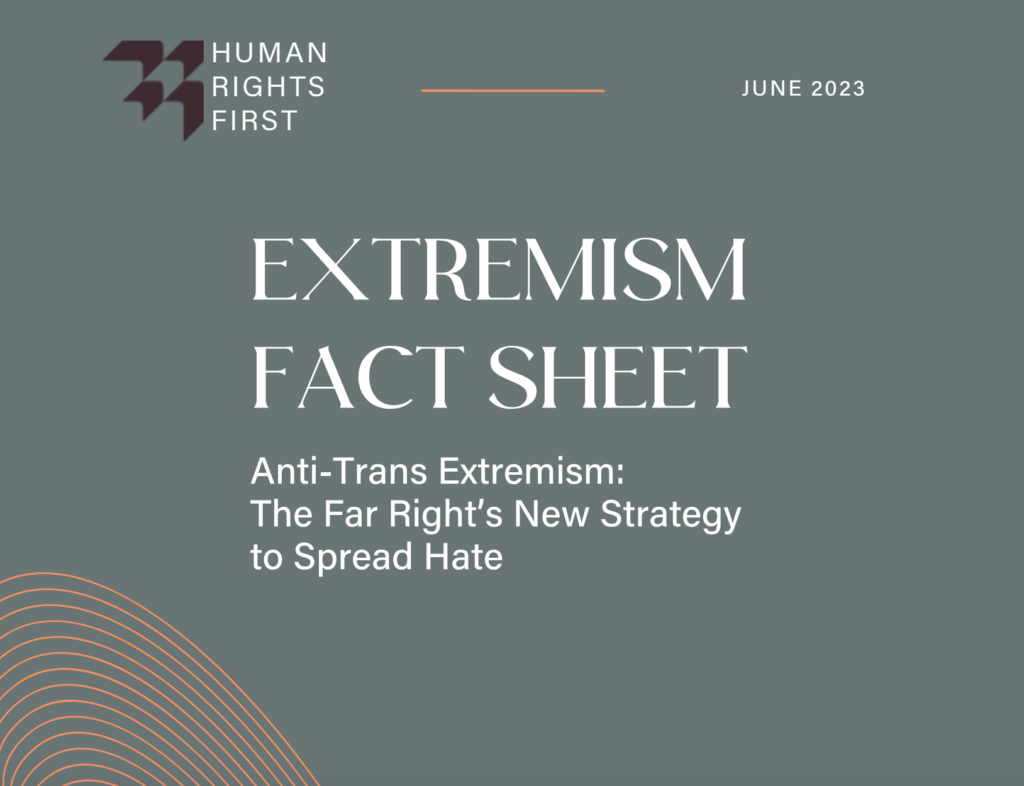
Anti-Trans Extremism: The Far Right’s New Strategy to Spread Hate
Human Rights First — June 2023
This powerful fact-sheet simply and directly explains: “The rapid growth and normalization of anti-trans extremism in the United States threatens the trans and broader LGBTQ+ community, while also creating inroads for attacks on other targeted communities. It amplifies bigotry, regularly inspires harassment and hate-fueled attacks, creates inequitable and unsafe environments for LGBTQ+ individuals and their families, and ultimately undermines democracy.” The fact-sheet showcases examples of false inflammatory anti-trans social media posts; offers a concise debunking of common anti-trans tropes; explains the systemic attacks of the far-right on trans rights at the federal, state, and local level; illuminates the destructive impact of anti-trans extremist attacks; and features simple practical guidance for how to respond to anti-trans extremism (including rejecting extremist narratives and supporting inclusive policies).
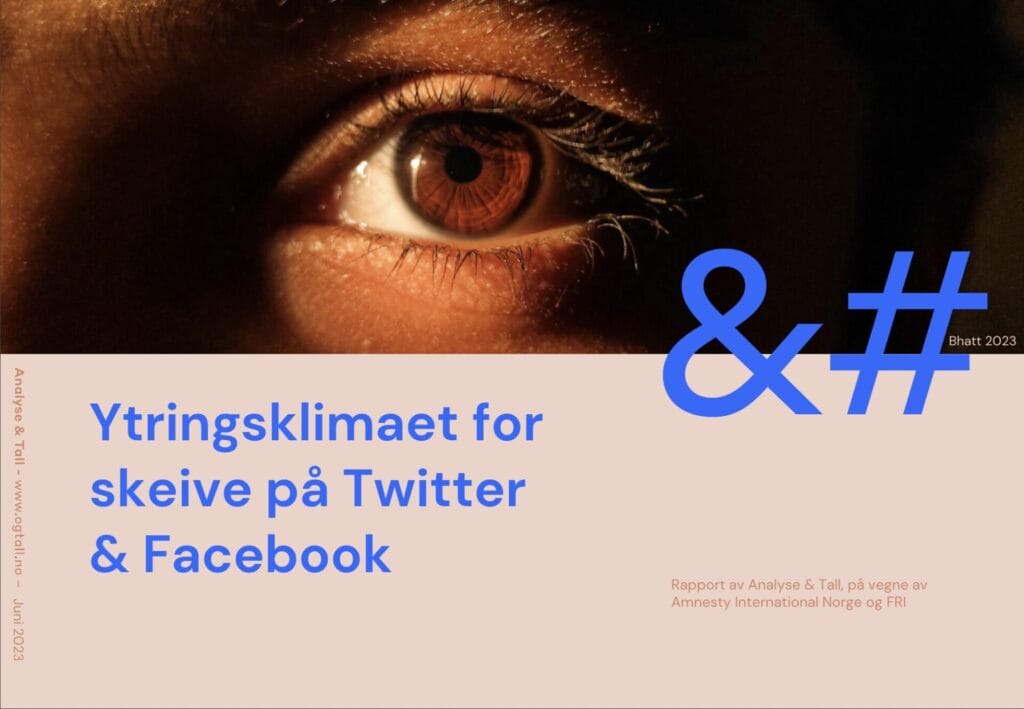
The Online Public Discourse about LGBTQ people – Analysis & Numbers
Amnesty International Norway & FRI — 2023
This report illuminates how anti-LGBTQ “hate speech and negative discourses” on social media in Norway have highly consequential impacts for all of Norwegian society, noting that: “It is a serious democratic problem if minority groups refrain from participating in the public debate and expressing themselves publicly for fear of incitement, disparaging, or highly critical comments about their sexual orientation or gender identity.” Using a proprietary algorithm, the researchers undertook a quantitative and qualitative analysis of LGBTQ content on X/Twitter and Facebook from 2018 to 2022, finding that: “The number of tweets about queer topics increased from 6,457 to 44,620 in the period. The number of tweets about transgender people increased from 1,485 to 23,465 – almost 16 times the number of tweets.” While the report found a high percentage of anti-trans content on X/Twitter (47%), it also found a significant quantity of trans-affirming content (40%); though anti-trans content has risen over time, while supportive sentiment has dropped.
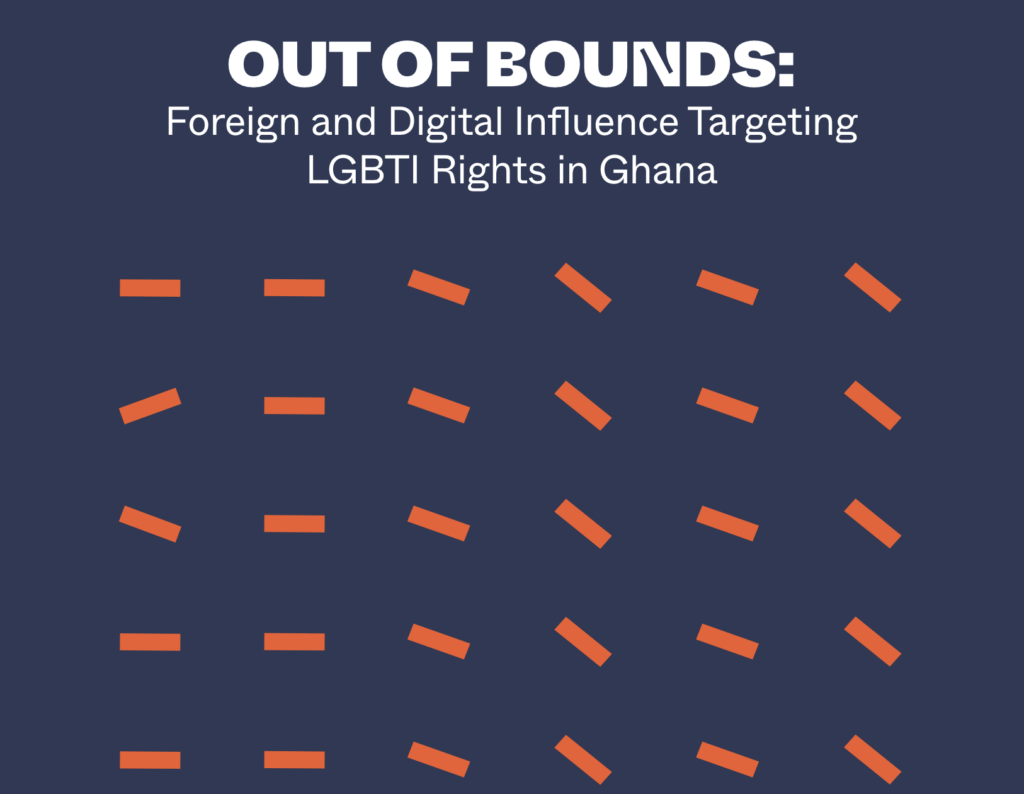
Out of Bounds: Foreign and Digital Influence Targeting LGBTI Rights in Ghana
Ipas — 2023
“As this report clearly documents, foreign interests are the impetus for a bill driven by right-wing, mostly evangelical Christian groups in the U.S. that are on a strategic anti-rights mission around the world, and that, with the cooperation of its politicians, have set their sights on Ghana.”
Similar to the 2023 Amnesty International Norway report, this fascinating analysis employs AI and machine-learning to look at large amounts of social media content in Ghana from 2018 to 2022, with a focus on identifying the foreign-influenced anti-LGBTQ drivers behind the country’s draconian anti-LGBTQ bill (passed by Parliament in February, but as of May 2024 still awaiting the action of Ghana’s president, who is expected to veto it). The bill would criminalize LGBTQ advocacy organizations and individuals, as well as anyone failing to report an LGBTQ person to authorities or to report anyone using a social media platform for such LGBTQ advocacy. (The bill would also place liability on social media companies such as Meta and X/Twitter should they allow on their platforms material that supports LGBTQ activities and rights.) Specifically illuminating the malign utilization of social media platforms by conservative foreign (especially U.S.) evangelical Christian anti-LGBTQ groups to seed, disseminate, and amplify anti-LGBTQ messaging, researchers found that: “While inside Ghana there has been significant public approval for the oppression of the LGBTI community, support for the LGBTI community — as indicated by engagement with pro-LGBTI content for the purpose of this report — has also increased.” One of the most significant determinations of the report is that: “It is necessary to educate key stakeholders, politicians, advocates, and journalists on the difference between a real grassroots campaign with millions of supporters and an online petition or campaign that uses paid media and global supporters to create a facsimile of public outrage.” Interestingly, though anti-LGBTQ rhetoric and attacks on LGBTQ rights continue, the report concludes that: “The balance of public opinion has in fact shifted toward tolerance for the LGBTI community.”
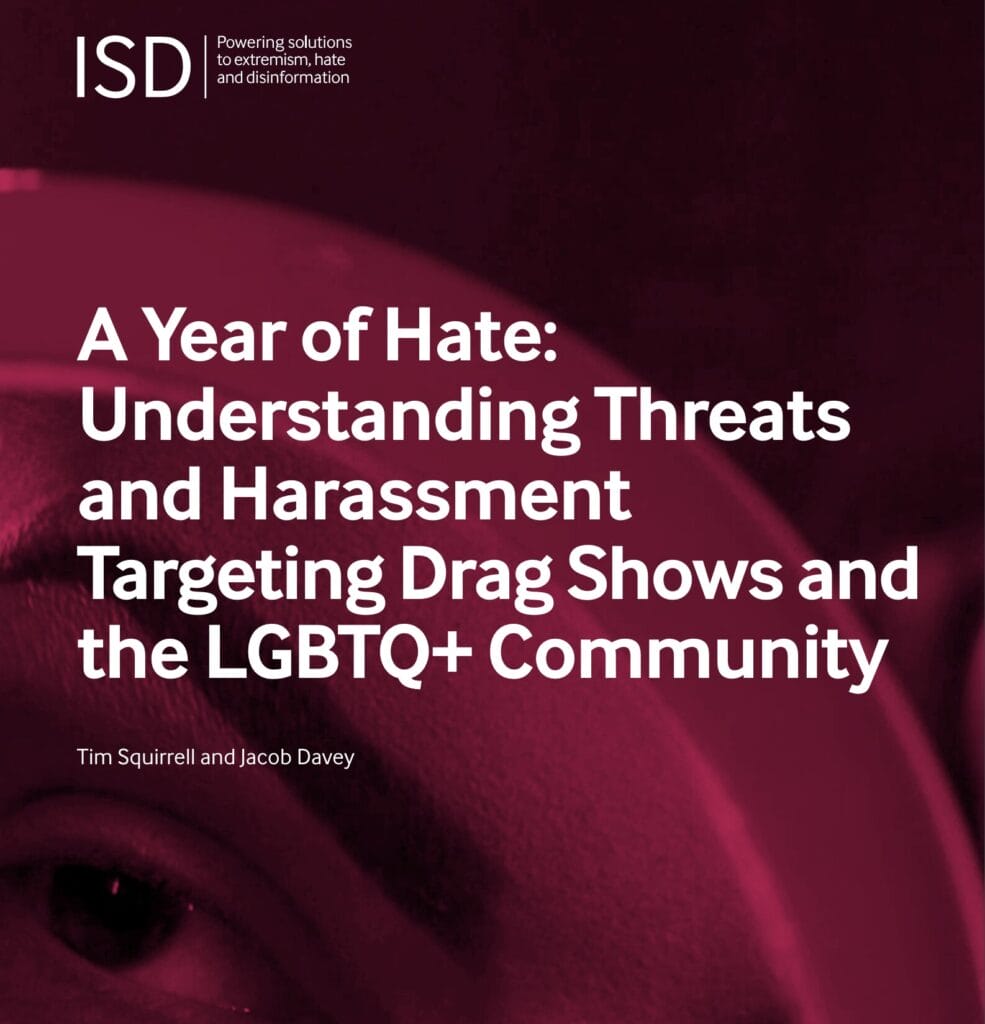
A Year of Hate: Understanding Threats and Harassment Targeting Drag Shows and the LGBTQ+ Community
ISD — June 2023
From the report: “Internationally, rising hate and extremism pose an existential threat to human rights and democratic freedoms. LGBTQ+ communities are often the first group to come under attack, and understanding the contours of these assaults matters both for the protection of these communities and to be better able to safeguard human rights and democracy more broadly. In new research by ISD, including four country profiles [the U.S., UK, Australia and France], we examine the trends in anti-LGBTQ+ hate and extremism with a particular focus on harassment targeting all-ages drag shows. This research draws on ethnographic monitoring of over 150 Telegram channels, Twitter profiles and Facebook groups, as well as external resources such as news reports, Armed Conflict Location & Event Data (ACLED) and Crowd Counting and previous reports on anti-drag by GLAAD and the Southern Poverty Law Center.”
Please see the 2024 SMSI Articles and Reports Appendix for many other reports of interest.












